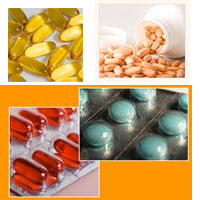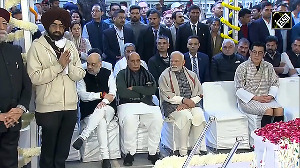 The price war and hefty trade discounts (eight to 26 per cent) offered by some 'emerging' companies are hitting pharma majors where it hurts the most -- the highly competitive acute therapy segment, which accounts for 75 per cent of the annual industry sales of Rs 57,000 crore (Rs 570 billion).
The price war and hefty trade discounts (eight to 26 per cent) offered by some 'emerging' companies are hitting pharma majors where it hurts the most -- the highly competitive acute therapy segment, which accounts for 75 per cent of the annual industry sales of Rs 57,000 crore (Rs 570 billion).
Ranbaxy's domestic sales growth, which has consistently been 16-27 per cent in the first seven months of the current calendar year, slid to 11 per cent in August.
Cipla has been reporting sub-five per cent growth in each of the last three months.
The sales growth for Cadila has dipped from 14-25 per cent in the first half of the year to six per cent July and 8.6 per cent in August.
On the other hand, smaller players such as Mankind and Macleods have reported strong growth, helping them break into the top 15 domestic pharma companies in 2011.
"Volume discounts explain the strong growth reported by the emerging names (like Mankind, Macleods)," Bank of America Merrill Lynch analysts S Arun and Arvind Bothra said in a recent report.
However, this practice so far has been concentrated in the acute segments (anti-infectives, respiratory),
However, most analysts said the pain for bigger players could be a short-term affair.
While larger companies could get impacted due to intensifying competition, they could eventually overcome competition from smaller players through their brand pull and prescription sales.
"Emerging players could in the short term take market share away from larger players such as Ranbaxy and Cipla on the back of a sales push through higher discounts," says a pharma analyst.
"However, the trend of offering discounts could push up volumes but is not sustainable, as it crimps margins, he adds.
"Bonus or discounts may impact larger players in the short term but the key driver in the long term is prescription-driven growth, which accounts for 80 per cent of sales," says a pharma consultant.
While the competitive intensity has increased, pharma sales growth, which had dipped to 8.9 per cent in July, came back strongly to post a 14.2 per cent jump in August.
Analysts believe the extended monsoon could push up anti-infective sales and strong growth in the chronic segment could see the sector record 15 per cent sales growth for the current financial year.











 © 2024 Rediff.com -
© 2024 Rediff.com -